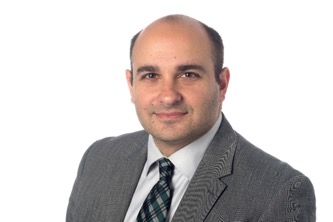Date/Time
Date(s) - 25/11/2020
7:00 pm - 8:00 pm
Categories

Speaker: Prof. Dr. Nikolaos Tsilimparis, Head of Vascular Surgery Department, University Hospital, Ludwig Maximilians University, Munich
Register in advance for this webinar:
https://us02web.zoom.us/webinar/register/WN_K66yFIJ1TtmRIYMyXLqCAA
After registering, you will receive a confirmation email containing information about joining the webinar.
This enlightening discussion with Prof. Dr. Tsilimparis was originally scheduled for 25th March, but due to the Coronavirus crisis meeting restrictions, we decided to delay the meeting until a more suitable time later in the year. That time will be 25th November. Given the intervening efforts to corral the COVID-19 virus along separate paths on both sides of the Atlantic, the meeting should now be of even more relevance.
Today’s German healthcare system was founded in 1883 as part of Chancellor Otto von Bismarck’s social legislation. It is based on three key principles:
- Solidarity – the government is responsible for ensuring access by those who need it.
- Subsidiarity – Policies are implemented with the smallest political and administrative influence.
- Corporatism – The government representative bodies in health care professions set out procedures they deem feasible.
Mandatory health insurance has gradually expanded to cover the great majority of the population. The system is decentralized with private practice physicians providing ambulatory care and independent hospitals (mostly non-profit) providing most inpatient care. Today about 92% of the population in Germany is covered by a ‘Statutory Health Insurance’ plan, which provides a standardized level of coverage through any one of a number of public or private sickness funds. Standard insurance is funded by a combination of employee contributions, employer contributions and government subsidies on a scale determined by income level. Medical costs for given treatments are limited according to a set table of costs that can be charged.
Higher-income workers sometimes choose to pay a tax and opt-out of the standard plan, in favor of ‘private’ insurance. The latter’s premiums are not linked to income level but instead to health status. Historically, the level of provider reimbursement for specific services is determined through negotiations between regional physicians’ associations and sickness funds.
As we all know, healthcare and the issue of pre-existing conditions continue to be key topic during this year’s 2020 US election campaign. Prof. Tsilimparis will outline the German system, then make some comparisons to the U.S. Affordable Care Act (ACA/Obamacare) enacted in 2009.
Prof. Nikolaos Tsilimparis has served as the Head of the Vascular Surgery Department at the Uni Klinikum in Grosshadern since September 2018. Previously he was Deputy Head of Endovascular Aortic Surgery (2015-2018) and Consultant (2013-2015) at the Hamburg Heart and Vascular Center in Eppendorf; Staff Surgeon in Department of General, Vascular and Thoracic Surgery at Charité Medical University in Berlin (2011, 2012-2013); and Clinical Research Fellow in the Division of Vascular and Endovascular Surgery at Emory University School of Medicine in Atlanta GA (2011-2012). From 2007-2011 he served in positions at the Charité Medical University in Berlin. He completed his medical studies (1998-2004) at the Medical School, Aristotle University in Thessaloniki, Greece and is a native of Corfu, Greece. He holds German and Greek citizenship and his wife is American.
